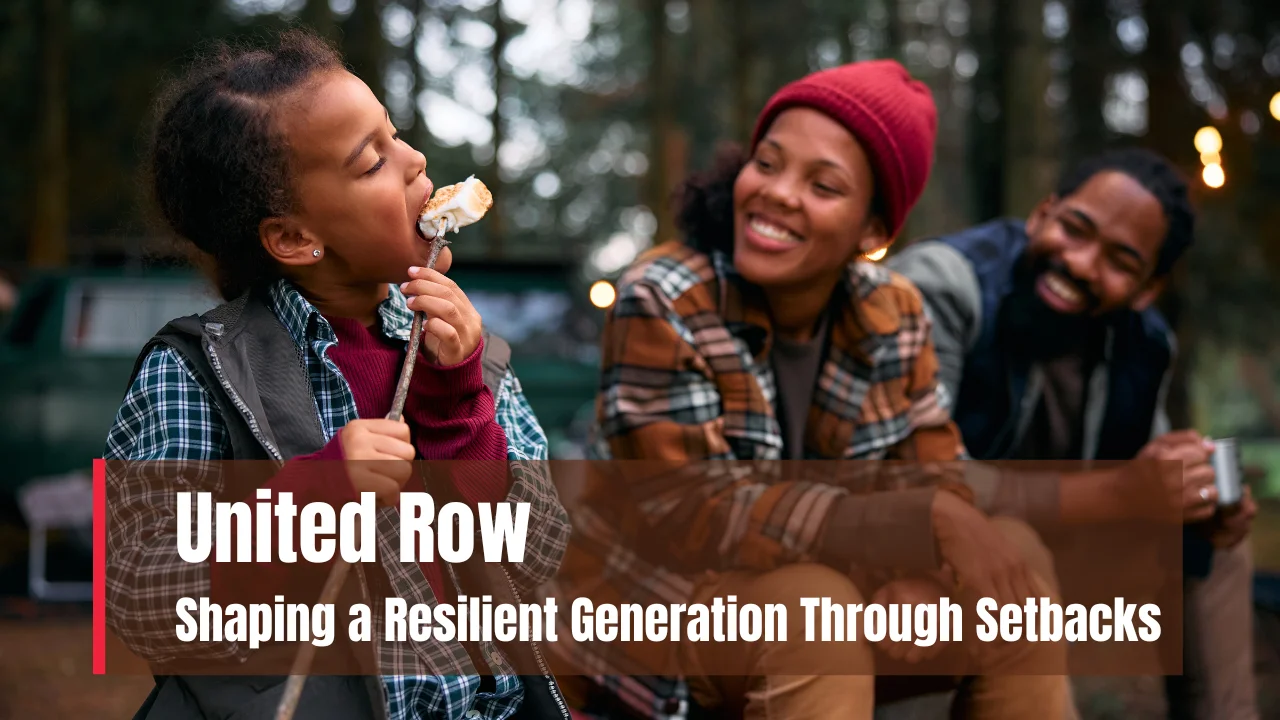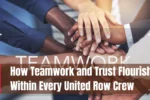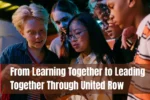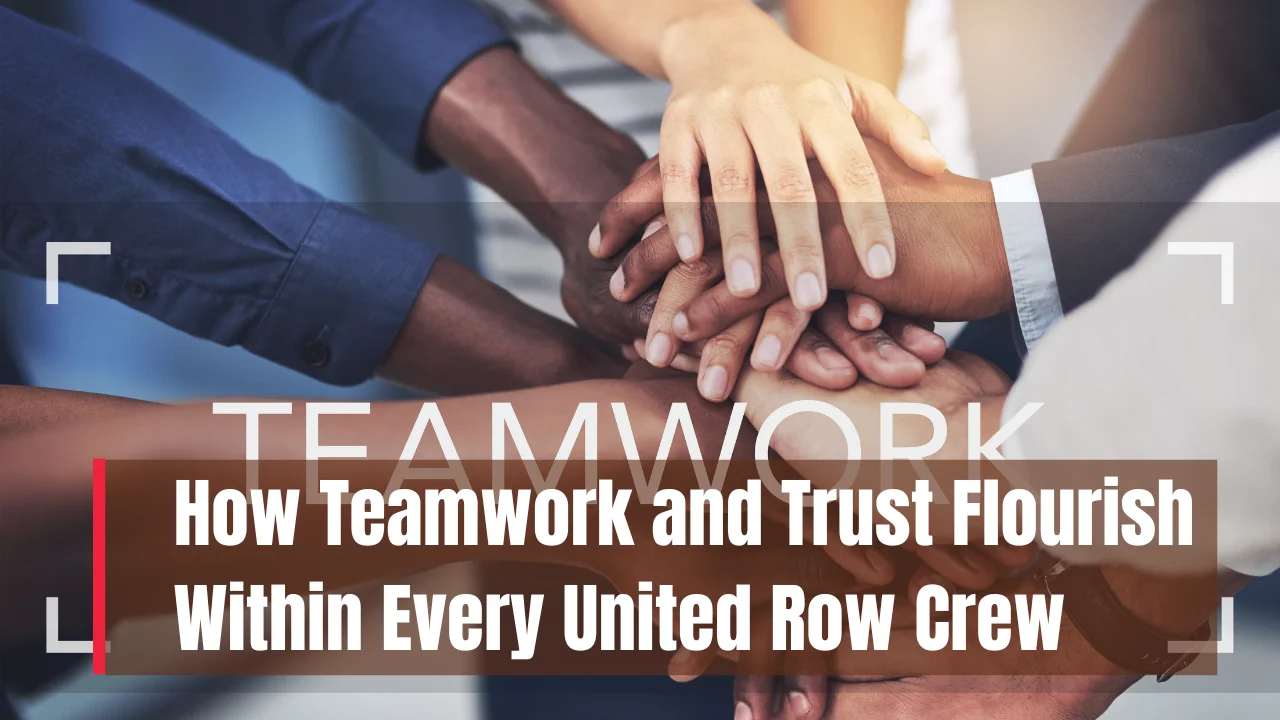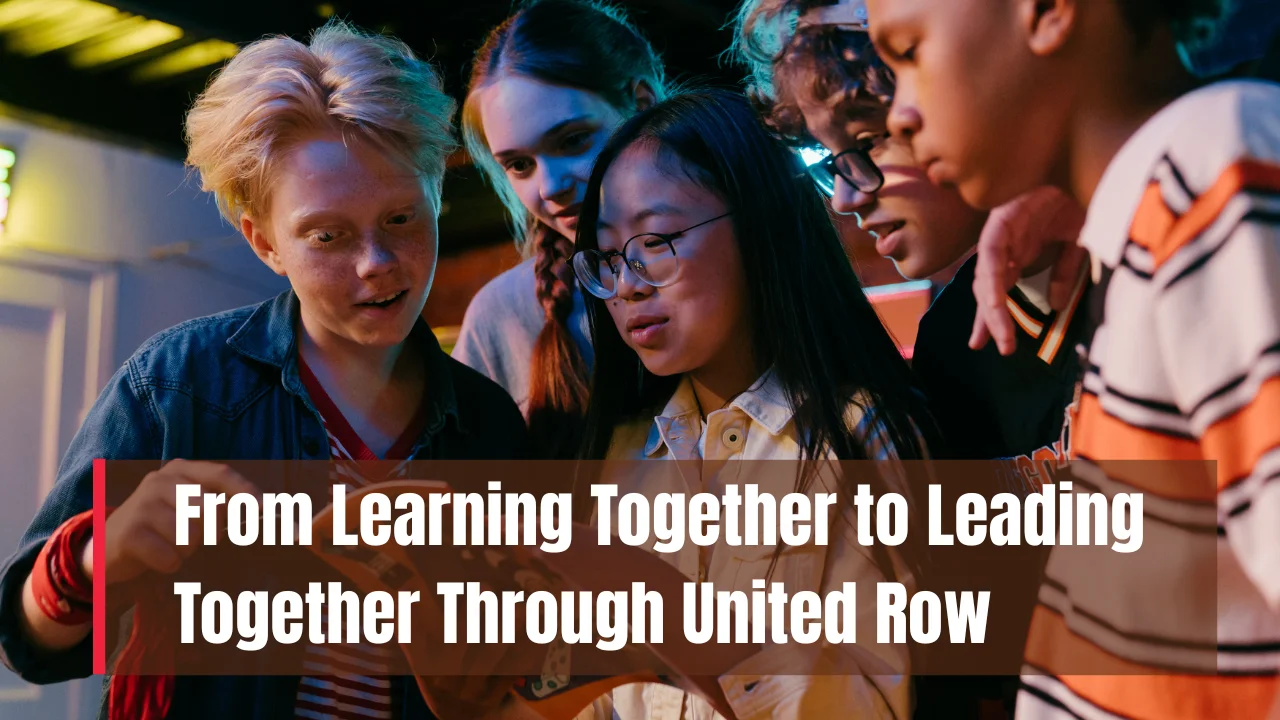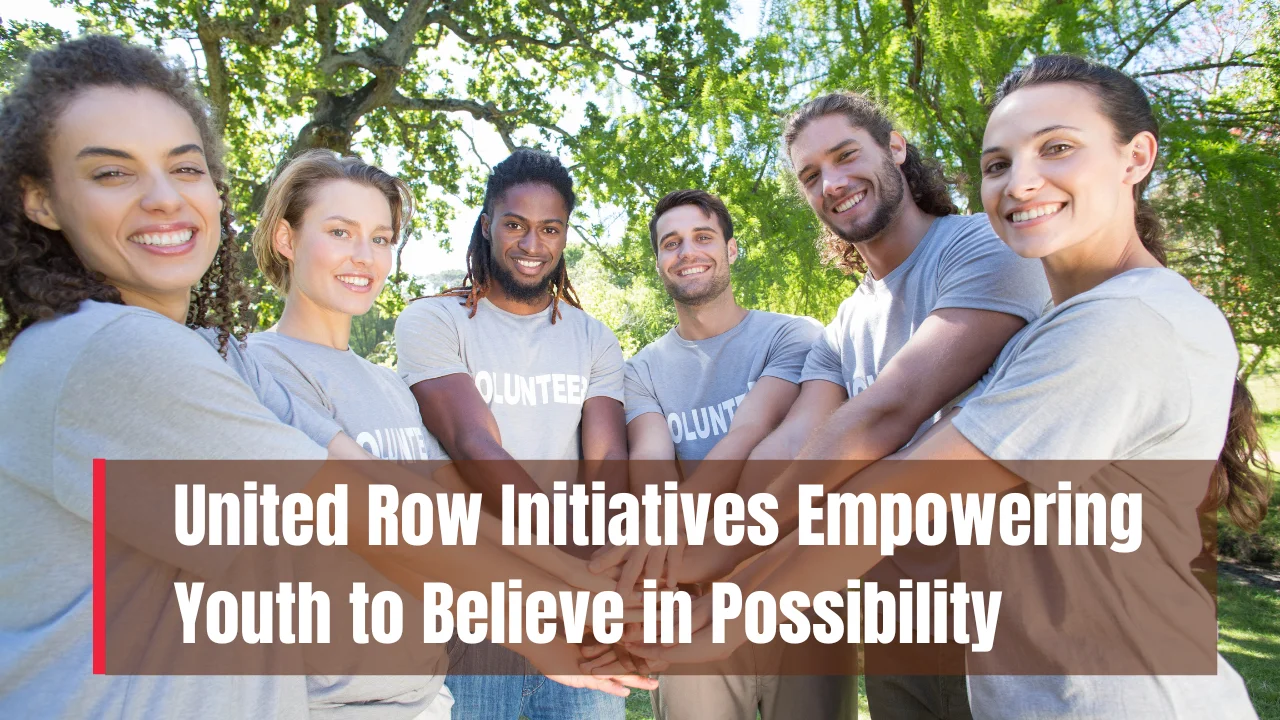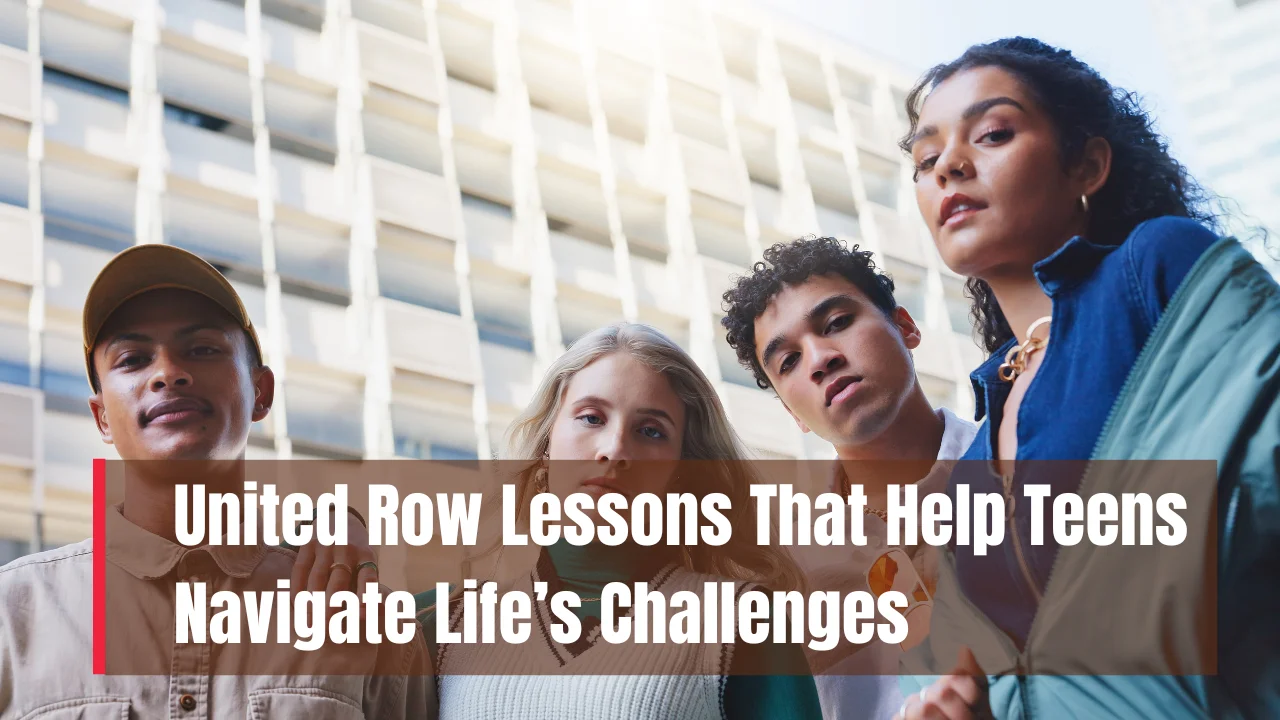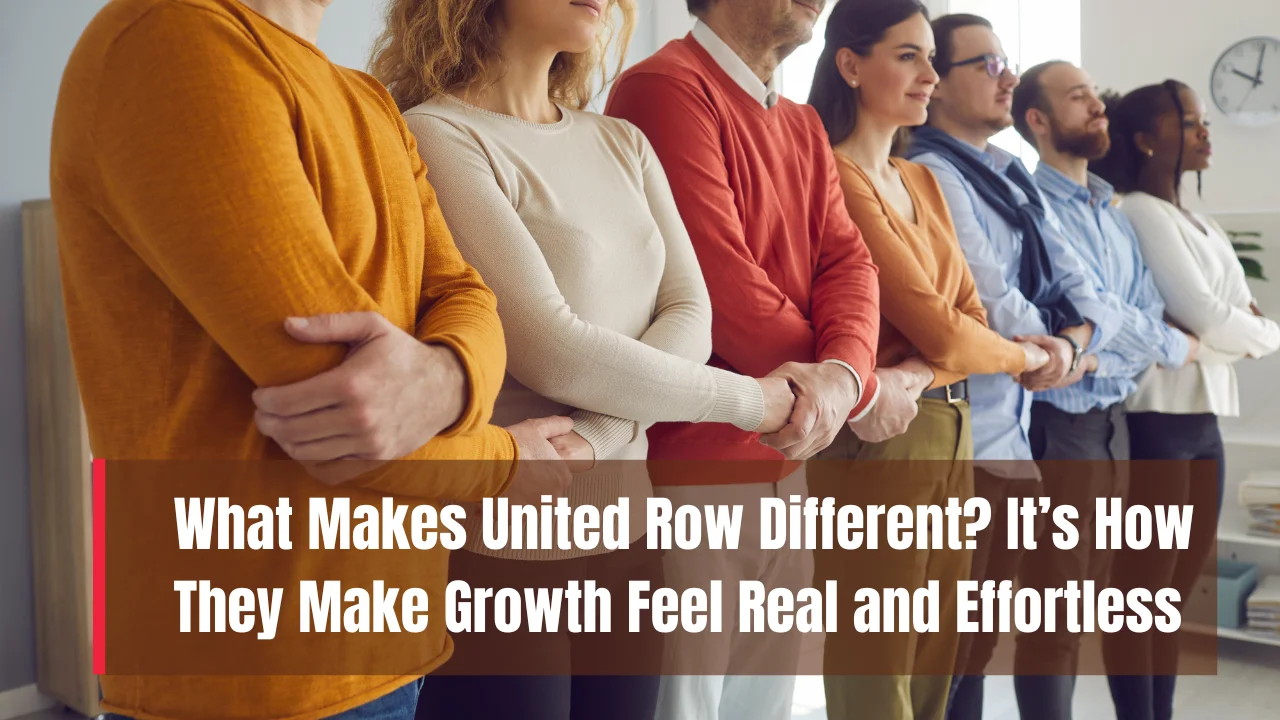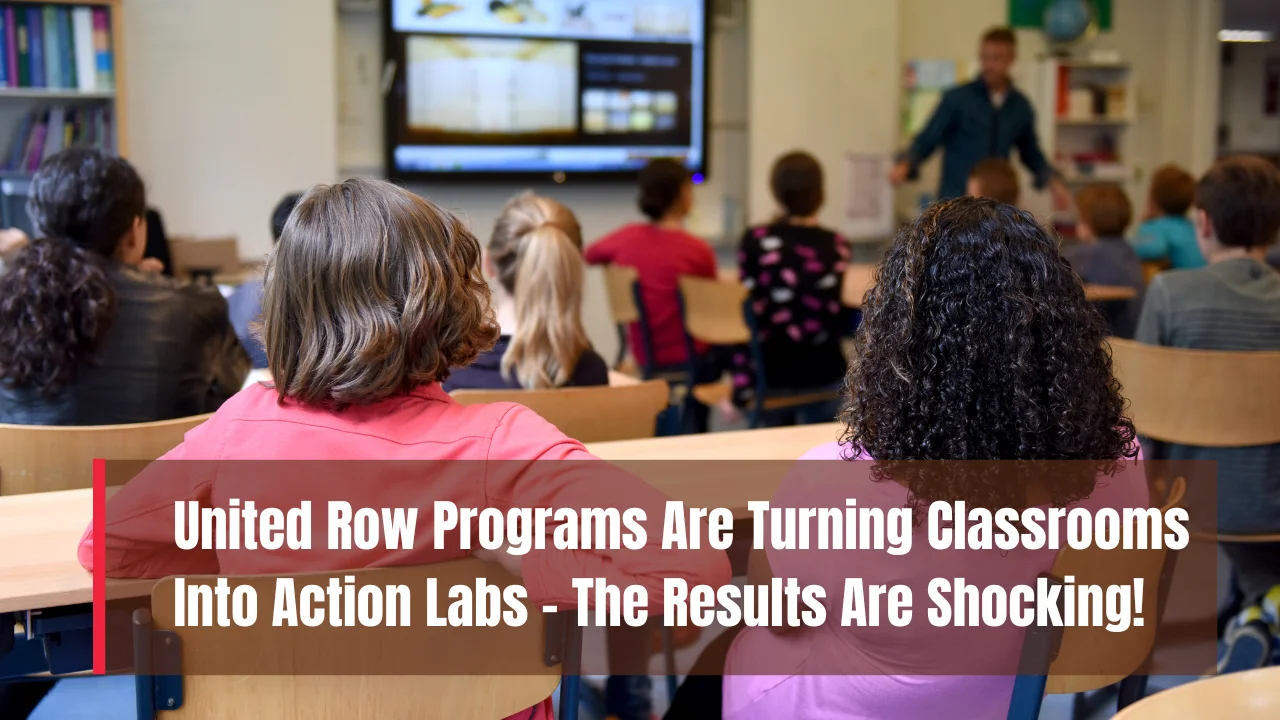How United Row Inspires Students to Turn Setbacks Into Strength: United Row is a powerful platform that champions the idea that failure is not the end, but the beginning of strength. In a time where students are under immense pressure to succeed academically, socially, and personally, this initiative sends a loud and clear message: setbacks do not define you—they refine you. The organization is gaining attention for its ability to transform defeat into drive, nurturing a culture where learning from failure is valued more than the fear of it.
This article explores the unique ways United Row empowers students to reshape their view of failure and turn difficult moments into defining ones. We’ll dive into how the initiative works, its mission, the tools it offers, and why it has become such a vital force for student empowerment. You’ll discover how United Row helps students push past academic pressure, rebuild confidence, and create meaningful personal growth by embracing challenges as learning opportunities.
How United Row Inspires Students to Turn Setbacks Into Strength
United Row is not just another student support program—it is a growing movement designed to reframe how students see failure. Its goal is to create a generation that doesn’t crumble under academic or emotional pressure but rises from it with a deeper sense of purpose and strength. By promoting honesty, resilience, and mentorship, United Row lays the foundation for young people to become their most empowered selves. Through real-world stories, practical tools, and a focus on mental strength, it bridges the gap between struggling and succeeding.
Overview Table
| Aspect | Details |
| Mission | Transform student setbacks into strengths |
| Primary Audience | Middle school, high school, and college students |
| Key Focus | Emotional strength, mindset building, student empowerment |
| Support Tools | Journals, mentorship, workshops, peer circles |
| Common Challenges Addressed | Academic pressure, low confidence, fear of failure |
| Community Engagement | Online forums, school events, real-life stories |
| Impact | Improved self-esteem and better coping strategies |
| Long-term Vision | Create a resilient generation of learners and leaders |
The Mission Behind United Row
At the heart of United Row is a simple but powerful belief: failure is not the opposite of success—it’s part of the journey. The organization exists to help students who feel weighed down by their mistakes, academic pressure, or self-doubt. Rather than ignoring these struggles, United Row gives students a safe space to talk about them and learn from them.
Its programs are grounded in emotional awareness and personal development, offering students tools to build resilience and embrace growth. The mission is clear: to build mentally strong individuals who don’t fear falling but are prepared to rise stronger each time they do.
Turning Failure into a Learning Tool
Most students grow up in environments where success is celebrated but failure is avoided. United Row challenges this by teaching students how to view failure as feedback. Instead of labeling a low grade or a personal mistake as a sign of incompetence, students learn to analyze what went wrong and how they can improve next time.
With guided reflection exercises and one-on-one mentorship, students develop a mindset that welcomes learning through experience. This reframing builds student resilience and encourages them to take bold steps without the fear of judgment or ridicule.
Real Stories That Inspire
One of the most impactful ways United Row reaches students is through storytelling. Whether it’s a high school senior who bounced back after academic probation or a college freshman who overcame anxiety to lead a student club, these stories make a difference. They’re not polished tales of perfection but honest, messy, and real accounts of growth.
Hearing relatable stories helps students realize that setbacks are not just normal—they’re expected. It helps reduce feelings of isolation and encourages students to open up about their own challenges. This sharing forms the heart of the United Row community and builds a culture of empathy and encouragement.
Supportive Environment Matters
The environment where a student learns and grows can determine their ability to bounce back from failure. United Row works with schools, colleges, and online platforms to create spaces that support emotional growth. Whether it’s peer-led support groups or facilitated discussions on mental strength, the goal is to provide consistent, positive reinforcement.
These spaces prioritize listening without judgment, offering a blend of practical tools and emotional support. As a result, students learn to speak openly about their struggles and support each other through shared experiences. This culture of care replaces competition with collaboration.
Tools and Strategies That Work
United Row doesn’t rely on vague motivational slogans. It equips students with practical tools that build resilience and boost personal growth. Here are some of the key strategies:
- Guided Journals: Help students reflect on failures, track emotional patterns, and set personal goals.
- Peer Mentorship Programs: Connect students with older peers who’ve faced similar challenges.
- Skill-building Workshops: Focus on problem-solving, goal-setting, and stress management.
- Weekly Check-ins: Promote accountability and emotional well-being through small group sessions.
These tools create a strong foundation for personal development and long-term success.
Key Ways United Row Empowers Students
- Mindset Building: Students are taught that success is not about perfection but persistence. They learn to value progress and effort over flawless outcomes.
- Community Support: The sense of belonging that comes from the United Row community helps students feel safe, heard, and supported during difficult times.
Common Setbacks Students Face
Every student encounters challenges, but how they respond is what makes the difference. United Row focuses on addressing key areas of student struggle:
- Academic Pressure: Students are often overwhelmed by expectations. United Row encourages them to focus on learning, not just performance.
- Fear of Failure: Fear can freeze progress. United Row helps students face fear with confidence and clarity.
- Low Confidence: Many students question their worth. Through mentorship and positive reinforcement, confidence is rebuilt one step at a time.
The Role of Mentors in United Row
Mentorship is a powerful part of the United Row experience. Mentors serve not just as guides but as proof that bouncing back is possible. These are people who’ve lived through challenges, made mistakes, and come out stronger.
They help students make sense of their experiences, share coping strategies, and offer encouragement when it’s most needed. More importantly, they show students that strength isn’t about never struggling—it’s about continuing despite the struggle.
Final Thought
United Row is changing the way students view failure. It encourages them to stop seeing setbacks as dead ends and start viewing them as necessary detours on the path to success. By offering emotional support, real-life examples, and practical tools, United Row is not just building better students—it’s shaping stronger, more resilient human beings.
If you’re a student feeling stuck, discouraged, or unsure, remember this: your story isn’t over. In fact, it’s just beginning. You are capable, and you are not alone. Let your next step forward be a strong one.
Want to share your own story of overcoming challenges? Leave a comment below. And if you’re ready to explore more about yourself, check your horoscope today and discover the energy guiding your path.
FAQs
United Row stands for unity in struggle and strength in recovery, helping students rise after setbacks.
You can join through your school, college, or via their online community platforms which offer open registration.
No, it supports students facing emotional, personal, and confidence challenges as well.
Many of the resources are free, including journals, discussion forums, and mentorship sessions.
Yes, experienced students often become mentors after completing initial programs and training.
